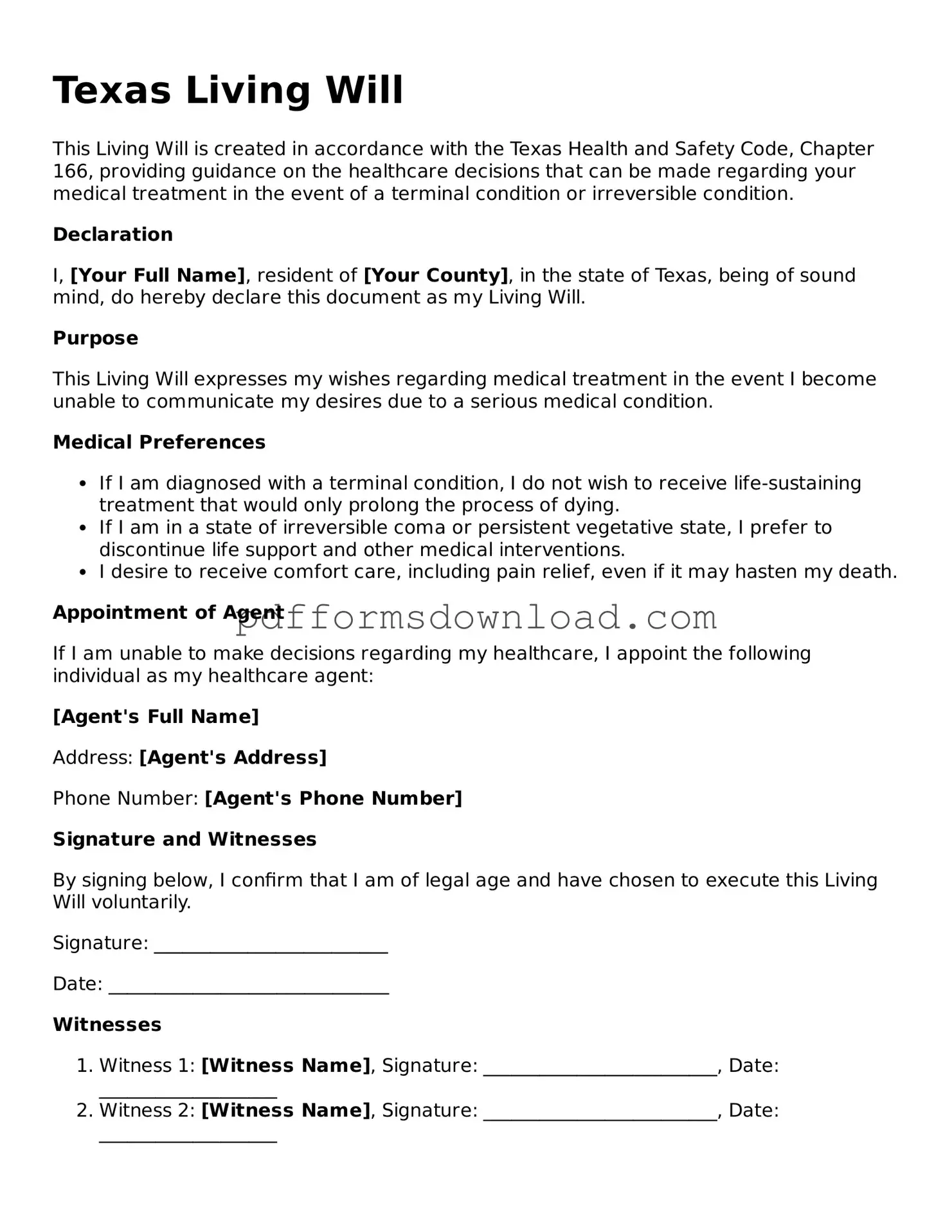Printable Texas Living Will Form
A Texas Living Will is a legal document that allows individuals to outline their preferences regarding medical treatment in the event they become unable to communicate their wishes. This form serves as a crucial tool for ensuring that one's healthcare decisions are respected and honored. By preparing a Living Will, individuals can gain peace of mind knowing their choices about end-of-life care will be followed.
Take control of your healthcare decisions today by filling out the Texas Living Will form. Click the button below to get started.
Make This Document Now

Printable Texas Living Will Form
Make This Document Now

Make This Document Now
or
Free PDF File
Your form is almost ready
Complete your Living Will online — edit, save, and download easily.